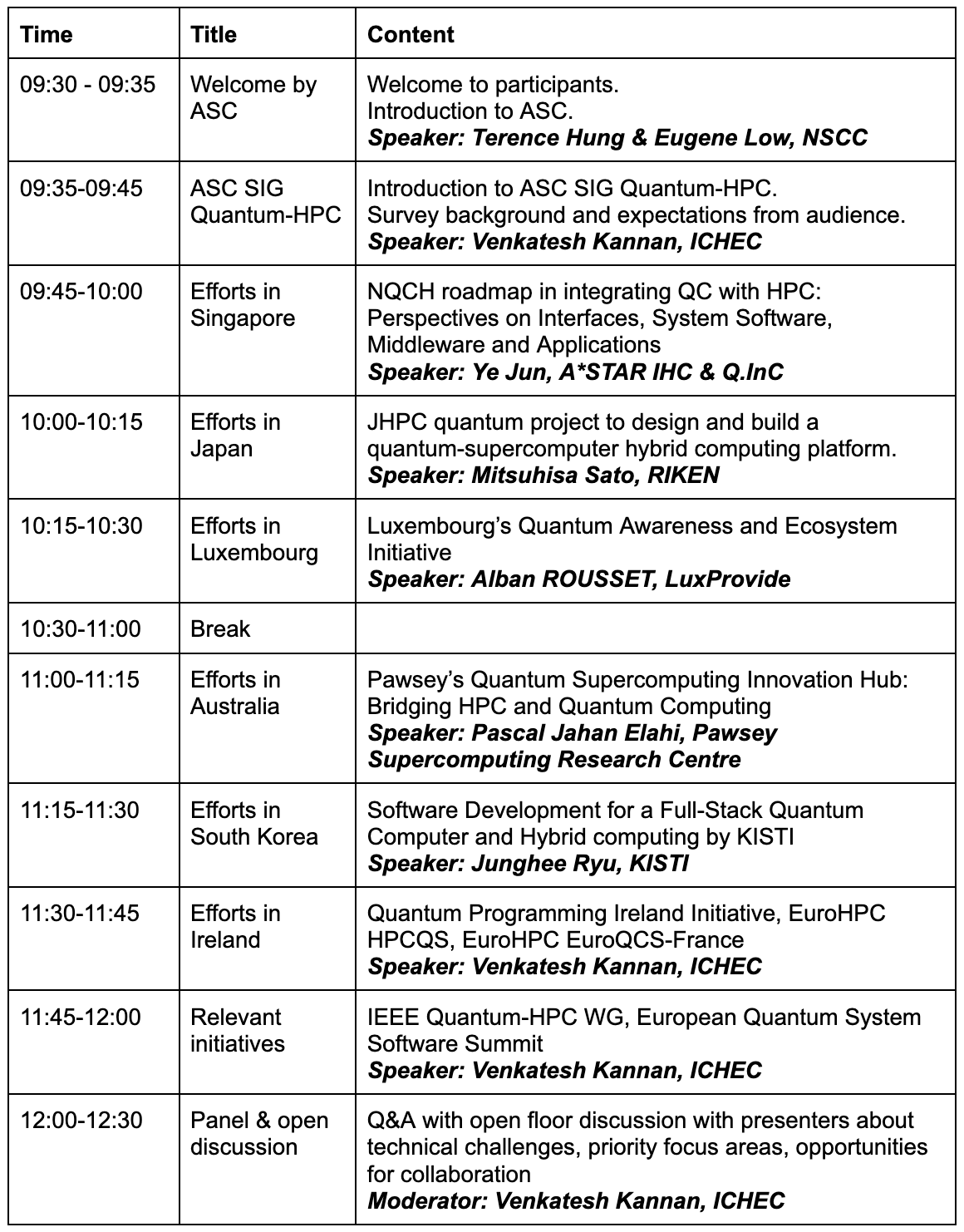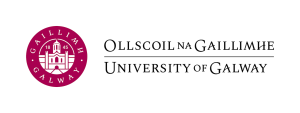ASC SIG Quantum-HPC (Alliance of Supercomputing Centres Special Interest Group)
In 2023, NSCC established the Alliance of Supercomputing Centres (ASC) the members of which include HPC Centres from 15 countries across the world. The main purpose of the alliance is to collaboratively enhance their capabilities in HPC and related technologies and competences.
In 2024, a Special Interest Group (SIG) was formed within ASC to focus on the challenges, ongoing efforts and expertise required to interface HPC and Quantum Computing (QC) for hybrid Quantum-HPC hardware and software infrastructure, use-cases and skills.
This ASC SIG Quantum-HPC Workshop proposed for SCA25 is the first public event of this SIG with a focus on ongoing efforts, resources and expertise of members of the ASC that are working on Quantum-HPC interfacing.
The objectives of this workshop are:
- To present and share technical and community building activities for Quantum-HPC interfacing.
- To identify mutual interests and opportunities for collaboration and co-development of Quantum-HPC interfacing where possible, both among the ASC members and with the wider HPC and QC communities.
- To synergise with other regional and international activities with similar objectives (e.g. IEEE Quantum-HPC Working Group, IEEE Standards Committee for Hybrid Quantum-Classical Computing, and European working groups linked to EuroHPC, European Quantum Flagship and European Quantum System Software).
The key takeaways from this workshop will be:
- For ASC, concrete directions and topics for engagement among the members and with other regional and international activities.
- For the wider workshop audience, awareness of activities within major HPC Centres for Quantum-HPC interfacing and opportunities for engagements/contributions to co-develop infrastructure and/or use-cases for hybrid Quantum-HPC systems.
Hosting this workshop at SCA25 also brings the focus from across the work to work closer with the HPC and QC community in APAC.
Target Audience
The target audience for this workshop include:
- representatives from ASC members,
- representatives of global HPC centres (involved in the interfacing and service provision of HPC and QCS systems),
- quantum technology developers (involved in the engineering and development of quantum computing, simulation and communication systems),
- computer system architects, administrators and electrical engineers (driving the host and control side of HPC and QCS systems),
- HPC and QCS software developers (involved in system software, runtime and programming tools),
- HPC and QCS application developers and use-case owners.
The audiences are expected to have familiarity either with HPC or QC systems or their use-cases.
Workshop Structure

Relevance & Impact
Current Trends
The technology to design and engineer quantum computing and simulation (QCS) systems is still maturing to achieve reliable and scalable QCS systems for practical applications. There are notable efforts underway to interface QCS and HPC systems, with the primary objective towards leveraging QCS systems as accelerators for HPC systems and applications. Other objectives include the use of HPC systems for operational control and error correction of QCS systems. The requirements to interface HPC and QCS systems cover the full stack:
- hardware infrastructure deployment and operation
- networking and interconnectivity
- system software interoperability
- application programming and workflow integration
- hybrid use-case identification, demonstration and evaluation
- interdisciplinary knowledge transfer and skills development
The workshop will bring together key experts and the stakeholders within ASC as well as the broader HPC and QC communities to synergise.
Practical Applications
The ASC SIG Quantum-HPC and this workshop will work toward creating a sustainable framework for structured discussions and developments towards community-driven interoperable methods, standards and white papers for developing solutions to deploy, operate and use hybrid HPC-QCS systems, tools and applications.



